
Pre-existing cardiovascular disease was associated with an increased mortality risk during the first 6 months of abiraterone acetate treatment in patients with advanced prostate cancer.

Your AI-Trained Oncology Knowledge Connection!


Pre-existing cardiovascular disease was associated with an increased mortality risk during the first 6 months of abiraterone acetate treatment in patients with advanced prostate cancer.
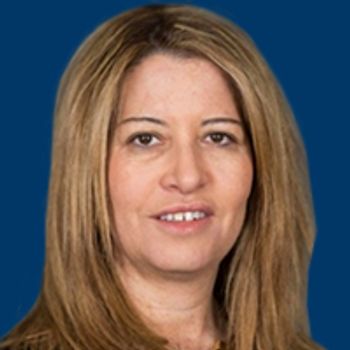
Many younger patients see more than one doctor and face misdiagnoses before being given a diagnosis of colorectal cancer.

A liquid biopsy test detected all of the guideline-recommended biomarkers in newly diagnosed patients with metastatic non–small cell lung cancer at a similar rate but faster turnaround time to that of tissue genotyping.

Select patients with melanoma who consume a diet rich in fiber could see an improved response to treatment with immunotherapy.

More than 90% of older patients with relapsed/refractory acute myeloid leukemia had successful engraftment of allogeneic hematopoietic stem cell transplant preceded by novel conditioning with an iodinated CD45-targeted antibody.
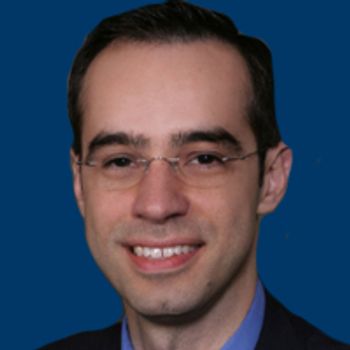
Chimeric antigen receptor T cells targeting CD30 proved to be safe and active in relapsed/refractory Hodgkin lymphoma.
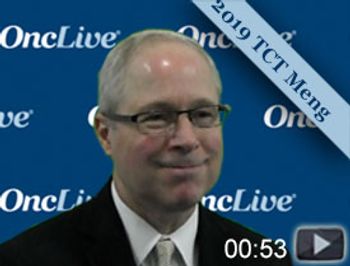
Paul J. Shaughnessy, MD, discusses stem cell mobilization in patients with lymphomas.

Two doses of adjuvanted recombinant zoster vaccine following autologous hematopoietic stem cell transplant led to rapid and durable cell-mediated immune responses, results from a subgroup analysis of a large randomized, placebo-controlled trial showed.1
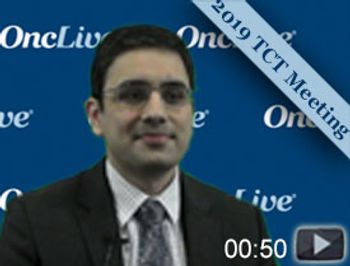
Premal Lulla, MD, discusses the need for cellular therapies for patients with leukemia after transplant.
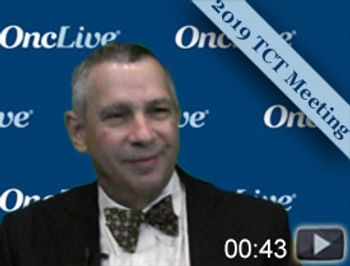
Sergio A. Giralt, MD, discusses the role of allogeneic hematopoietic cell therapy in patients with multiple myeloma.
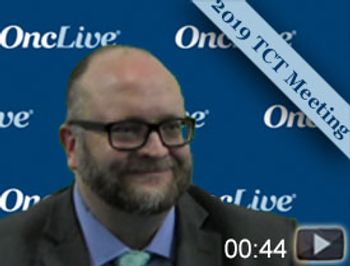
Christopher E. Dandoy, MD, MSc, says that patients undergoing allogenic stem cell transplant are at high-risk of developing thrombotic microangiopathy.

Christopher E. Dandoy, MD, MSc, discussed how higher levels of soluble suppression of tumorigenicity-2 and soluble terminal complement complex were associated with high-risk thrombotic microangiopathy, a severe complication related to stem cell transplantation.
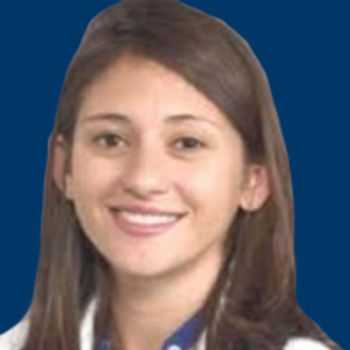
Transplant-associated thrombotic microangiopathy occurred in as many as 36% of hematopoietic cell transplants and significantly increased the risk of transplant-related mortality.
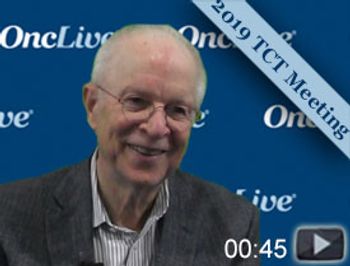
Richard E. Champlin, MD, a professor of medicine at MD Anderson Cancer Center, discusses the association seen between the Endothelial Activation and Stress Index (EASIX) and fluid overload and survival in patients who underwent an allogenic stem cell transplantation.
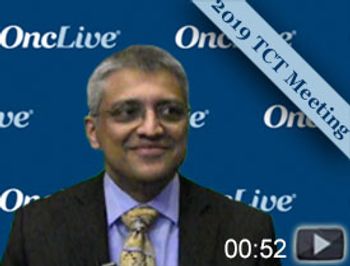
Shaji Kumar, MD, of Mayo Clinic, advises physicians on the use of autologous stem cell transplant in patients with newly diagnosed multiple myeloma.

Frederick L. Locke, MD, discusses the optimal management of chimeric antigen receptor T-cell therapy-related adverse events.

Patients with relapsed/refractory chronic lymphocytic leukemia had an improved response rate with chimeric antigen receptor T-cell therapy if they also received ibrutinib.
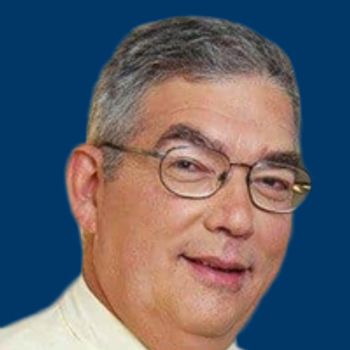
Adults with acute lymphoblastic leukemia had worse outcomes, including lower survival, after myeloablative allogeneic transplantation if they remained positive for minimal residual disease at the time of transplant.
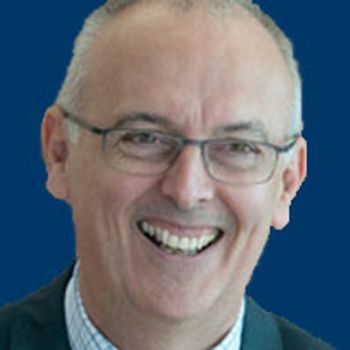
Gareth Morgan, MD, discusses the TOURMALINE-MM3 findings in multiple myeloma and other clinical trials that are impacting the landscape for this patient population.

Arlene O. Siefker-Radtke, MD, discusses the promising preliminary data with bempegaldesleukin plus nivolumab in patients with metastatic urothelial carcinoma and the next steps for this combination.

Single-agent pembrolizumab (Keytruda) showed encouraging antitumor activity as first-line treatment in patients with non-clear cell renal cell carcinoma, especially in those with papillary or unclassified histology.

Evan Y. Yu, MD, highlights 2 key studies with PARP inhibitors in metastatic castration-resistant prostate cancer and discussed challenges that need to be addressed in this space in order to further progress.
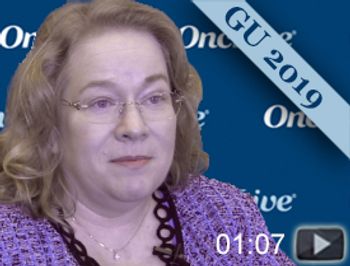
Arlene O. Siefker-Radtke, MD, professor, Department of Genitourinary Medical Oncology, Division of Cancer Medicine, The University of Texas MD Anderson Cancer Center, discusses the promise of bempegaldesleukin plus nivolumab in the treatment of patients with metastatic urothelial carcinoma.
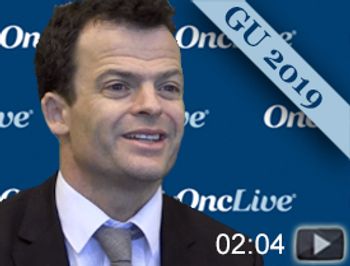
Thomas Powles, MBBS, MRCP, MD, director, Barts Cancer Institute, discusses durvalumab in combination with a MET inhibitor in the treatment of patients with papillary renal cancer.
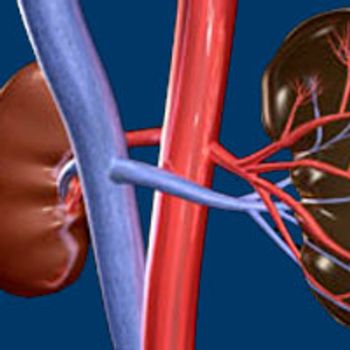
The overall response rate achieved with with the combination of savolitinib and durvalumabin in patients with metastatic papillary renal cell carcinoma in the phase II CALYPSO study did not meet the prespecified criterion for further investigation of the regimen.

The combination of pembrolizumab (Keytruda) and cabozantinib (Cabometyx) has antitumor activity in patients with previously treated metastatic renal cell carcinoma and is tolerated at their separate approved doses for this indication.

Sacituzumab govitecan exhibited significant clinical activity in an open-label, single-arm phase I/II basket study of patients with heavily pretreated, relapsed/refractory metastatic urothelial cancer.
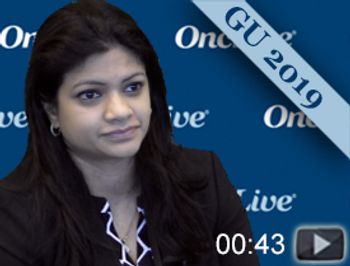
Arpita Desai, MD, medical oncologist, University of California, San Francisco Helen Diller Comprehensive Cancer Center, discusses the rationale for testing MRI functional imaging for bone metastases in men with castration-resistant prostate cancer.
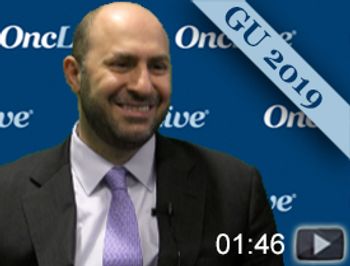
Toni Choueiri, MD, director, Lank Center for Genitourinary Oncology, director, Kidney Cancer Center, Jerome and Nancy Kohlberg Associate Professor of Medicine, Harvard Medical School, Dana-Farber Cancer Institute, discusses avelumab/axitinib data in renal cell carcinoma.

In a real-world setting, patients with metastatic castration-resistant prostate cancer who received radium-223 dichloride with abiraterone acetate in a layered fashion experienced a lower rate of symptomatic skeletal events compared with those who received the treatments concurrently.